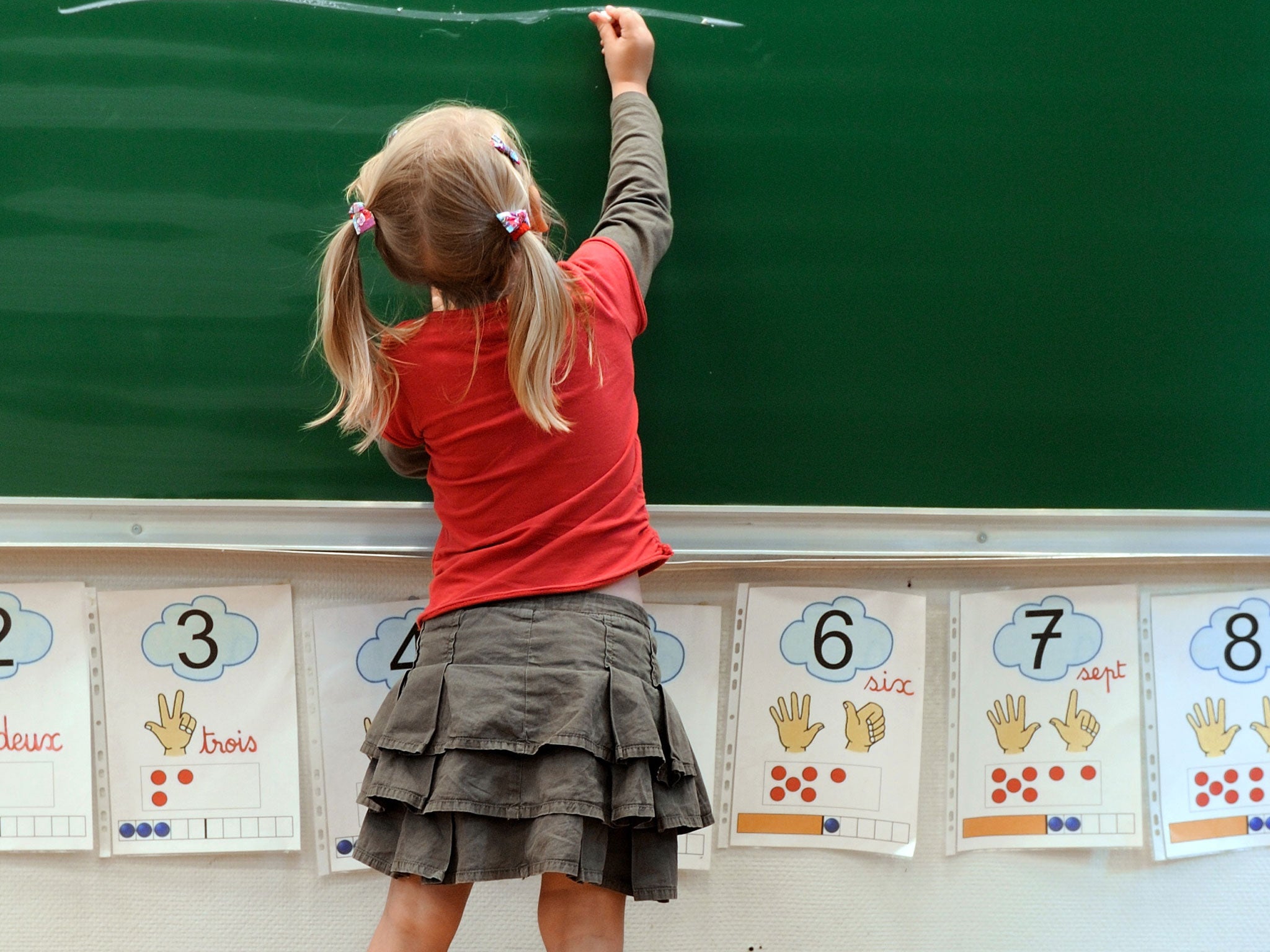The kids are all right: survey finds that most children are happy
More than half of those surveyed were 'completely happy' with their friends

Your support helps us to tell the story
From reproductive rights to climate change to Big Tech, The Independent is on the ground when the story is developing. Whether it's investigating the financials of Elon Musk's pro-Trump PAC or producing our latest documentary, 'The A Word', which shines a light on the American women fighting for reproductive rights, we know how important it is to parse out the facts from the messaging.
At such a critical moment in US history, we need reporters on the ground. Your donation allows us to keep sending journalists to speak to both sides of the story.
The Independent is trusted by Americans across the entire political spectrum. And unlike many other quality news outlets, we choose not to lock Americans out of our reporting and analysis with paywalls. We believe quality journalism should be available to everyone, paid for by those who can afford it.
Your support makes all the difference.Parents, breathe a sigh of relief, put up your feet, uncork the wine: your children are happy.
Nine out of 10, according to an official report yesterday, are experiencing a degree of personal satisfaction that may not be apparent from their grousing about their cheekbones, puzzlement at algebra and entreaties to divert more of your income into the profits of Nike Inc.
The pleasingly upbeat news comes from the Office of National Statistics, which has summarised the responses from “children to youth” questionnaires – attached to household surveys since 2009.
Measuring National Well-being – Children’s Well-being 2013 finds that, overwhelmingly, children of secondary school age are not festering balls of hormonal anger like Harry Enfield’s Kevin the Teenager, but spiritually serene individuals at one with their families and friends.
The children – all aged 10 to 15 – were asked: ‘How do you feel about your life as a whole, friends, family, school, school work, appearance?’ Responses were on a seven point scale from “completely happy” to “not at all happy”.
Overall, 89 per cent were relatively happy with their “life as a whole”, with only 4 per cent – one in 20 – describing themselves as unhappy (though the willingness of those at that age to self-identify misery may be an issue).
Within that statistical sea of happiness, however, landmarks stand out in the lives of folk travelling towards late childhood.
First, children very much like their friends – who were the group with whom they were most content. No fewer than 19 out of 20 secondary school-age children, a huge 96 per cent, were happy with their friends, the most positive outcome of any group.
More than half of those surveyed were “completely happy” with their friends. A touch lower came family, with a still hugely impressive happiness rating of 95 per cent. However, among those who liked both, more were “completely happy” with their family than with friends.
Children were less happy with other areas of their life, largely involving the outside world, than they were with the individuals closest to them – though they still scored much more highly than one might expect. Some 82 per cent of children, for instance, were happy with their school. In total, around two thirds were either ‘completely happy’ or ‘somewhat happy’ with their school.
Schoolwork – somewhat surprisingly – achieved the same overall satisfaction rating as school itself – 82 per cent, though within that overall satisfaction more children experienced a lower degree of satisfaction, with many being only “somewhat happy” with schoolwork.
Of all the areas, perhaps because of the emphasis on celebrity culture and peer pressure, children were least happy with their appearance. Nonetheless, they were still fairly happy. Three-quarters of children were satisfied with their looks, of those 19 per cent “completely”, 31 per cent “mostly” and 25 per cent “somewhat”.
In general, boys were slightly happier than girls, 91 per cent against 88 per cent.
Join our commenting forum
Join thought-provoking conversations, follow other Independent readers and see their replies
Comments